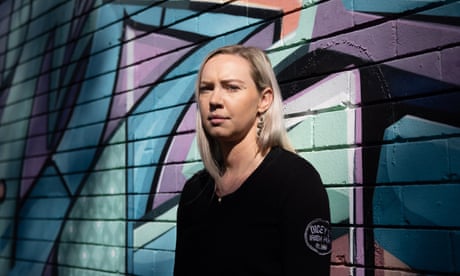- by foxnews
- 23 May 2025
Australia’s first-home buyers urged to ‘go in with eyes wide open’ about future rate rises
Australia’s first-home buyers urged to ‘go in with eyes wide open’ about future rate rises
- by theguardian
- 06 Apr 2022
- in news

Laura Valencic has never had the luxury of calling the "bank of mum and dad" to help her buy a home.
After the federal government announced more places under the first home guarantee scheme in the budget, Valencic feels like she finally has an in. But she's wary of a potential pitfall in the future: will she be able to afford the mortgage repayments when interest rates rise?
"If anything happens and we can't pay it, we can't pay it," said the 27-year-old from the home she shares with her partner in Appin, south of Sydney. "We don't have anyone to fall back on."
The Reserve Bank governor, Philip Lowe, in February urged people to be prudent with their borrowing and to build a buffer to withstand an increase in mortgage repayments, given interest rate rises this year are "plausible". Financial experts are also warning people entering the home guarantee scheme to "go in with their eyes wide open".
For people in Sydney who buy a home under the scheme this year, with a 5% deposit at the capped $800,000 price, their mortgage repayments will rise by about $539 a month by the end of 2024, according to RateCity. The house's equity could also drop by 6% at the same time, meaning they would owe the bank more than the house was worth.
"The concern is [the government] is providing people with a way to spend an incredibly large amount of money on a property at overheated prices," said Sally Tindall, research director at RateCity, which calculated the impact on mortgage repayments and home equity using forecasts by Westpac.
"Regulators are saying hold off while the government is saying jump in."
The Morrison government announced the scheme, which was first outlined in 2019, would be more than doubled to 50,000 places. It allows people to buy a home with as little as a 5% deposit and scraps lender's mortgage insurance.
Tindall said those who bought under this scheme when it first launched have enjoyed huge success as house prices soared by a record 24% last year. But she warned "we are now looking down the barrel of a very different property market".
"[The government] are not looking at the root problem, which is that house prices are too high."
The minister for housing, homelessness, and social and community housing, Michael Sukkar, said almost 35,000 additional social and affordable homes would be delivered by the Morrison government. This would be done via the additional $2 billion in funding flagged for the National Housing Finance and Investment Corporation, and $1 billion for the housing-enabling infrastructure facility.
"Under the home guarantee scheme, 60,000 Australians have already been supported into home ownership. We want to help even more Australians into their first home or a home that they've built for their family, which is why we are expanding the scheme," Sukkar said.
Sukkar also said the state governments and local councils needed to step up and increase the supply of housing to help address affordability: "We strongly encourage states to rethink their prohibitive taxes and regulatory bottlenecks."
A concern of Valencic's is that the high price of houses does not leave much room for the buffer that the RBA recommends. Nor it is likely she would have leftover cash to renovate the fixer-uppers that are in her price range.
The average home price in her area has risen from $722,500 in 2020, to $882,500 in 2021. Valencic and her partner have saved more than the 5% deposit needed, but she suspects this money will be eaten up by stamp duty and other moving costs.
Eliza Owens, head of Australian research at CoreLogic, said she doesn't think there's a heightened risk of first-home buyers defaulting on their mortgage under the scheme. But she said it's important people understand the risks, particularly as the scheme targets younger people who may have less understanding of how interest rates work.
"You need to understand interest costs are higher when you take out a low-deposit loan. And that, indeed, those interest costs will be exacerbated as we come into a higher cash rate some time over the next 12 months," she said.
People need to rigorously assess if they can ride out the peaks and troughs of the market once they buy, Owens said.
Kate Colvin, a spokesperson for Everybody's Home, said the "scheme is a Band-Aid for runaway house prices".
"We've got long-term problems in the housing market that need more fundamental fixes, and those fixes are reducing the benefits to investors from negative gearing and from the capital gains tax discount."
The office of the minister for housing, Michael Sukkar, was contacted for comment.
- by foxnews
- descember 09, 2016
United Airlines flight returns to Hawaii after concerning message found on bathroom mirror; FBI investigating
United Airlines Flight 1169 to Los Angeles returned to Hawaii after a "potential security concern" aboard the plane. The FBI and police are investigating.
read more


